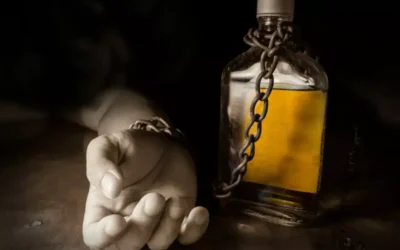Whatever the situation, there are a few ways to get started in the process of repairing wrongs with the people you most care about. Another example is a substance or alcohol-addicted adult child who regularly steals money, jewelry, and other valuable items from their elderly parent’s home. However, they may suddenly feel guilty and decide to change their ways. They can make a living amend to change their lifestyle, get sober, and stop stealing from their parent.
Consulting and Training
This group of individuals would review brain injury data, monitor the implementation of services, review and advise on the annual brain injury strategic plan, and review ongoing state public policy initiatives and state funding. Living Amends is committed to helping people in the Austin, TX area stay sober for more extended periods of time. However, we do not pay for anyone’s entire stay in their sober living community because we also recognize each person’s need to have stakes in the process. At Living Amends, we recognize the need for sober living in the recovery process.
Mental Health Needs of LGBTQI+ Children

Talk with your sponsor or others in your recovery community about what has worked for them. If your actions match your intentions and you reach out in person, you are doing the next right thing to right past wrongs. And remember, if you are feeling ashamed about mistakes made and damage done during your using days, you are not living amends your disease. Generally speaking, people work through the Steps of Alcohol Anonymous with an addiction treatment counselor and/or sponsor. You can also turn to AA’s Big Book and Twelve Steps and Twelve Traditions (the 12 & 12) for guidance specific to Step 8. It’s important to note that making amends is for the person we hurt.
Recovery Coaching
Federal law requires that state and tribal title IV-E and IV-B agencies (“agencies”) ensure that each child in foster care receives “safe and proper” care and has a case plan that addresses the specific needs of the child while in foster care to support their health and wellbeing. To meet these and other related statutory requirements, this final rule requires agencies to ensure that placements for all children are free from harassment, mistreatment, and abuse. The final rule requires that title IV-E and IV-B agencies ensure a Designated Placement is available for all children who identify as LGBTQI+ and specifies the Designated Placement requirements. Several commenters expressed concerns that children may feel unsafe disclosing their LGBTQI+ identity or reporting mistreatment in their current out-of-home placement due to their sexual orientation or gender identity.
Middlebury selectboard amends town noise ordinance – The Middlebury Campus
Middlebury selectboard amends town noise ordinance.
Posted: Thu, 02 Mar 2023 08:00:00 GMT [source]
Other Comments on Reporting Concerns About a Placement
In those cases, we can make amends in a broader sense by taking actions like donating money, volunteering our time or providing care. Think of amends as actions taken that demonstrate your new way of life in recovery, whereas apologies are basically words. When you make amends, you acknowledge and align your values to your actions by admitting wrongdoing and then living by your principles. These promises are often the most difficult to keep because addiction plays a decisive role in a person’s ability to live up to their promises.
The total FY 2027 estimate for Designated Placement training is $11,064,847. The total training cost for FYs 2027, 2028, and 2029 is $17,740,168. As we discussed in the preamble to this final rule, safe and appropriate placements are a requirement for all children in foster care. This final rule simply clarifies that requirement for LGBTQI+ children and preserves substantial state discretion consistent with that requirement.
- These practices included training kin caregivers and families of origin on affirming care, helping youth identify lasting affirming connections, having a mix of residential facilities for children, and training for facilities staff.
- Over the years, in small bits and pieces, I have been able to share small pearls of my Al-anon wisdom.
- If making an amends means exposing ourselves to triggering environments, we ought to reconsider and discuss healthy alternatives with a sponsor or addiction counselor.
- Prohibited distribution includes, but is not limited to, posting, e-mailing, faxing, archiving in a public database, installing on intranets or servers, and redistributing via a computer network or in printed form.
- It’s the point where we acknowledge that our behaviors damage others beyond ourselves.
- In response to commenters’ requests for greater clarity on what actions would constitute retaliation, the final rule provides additional detail about such actions and how they interact with other provisions of the rule, such as the prohibition on harassment, mistreatment, or abuse in all foster placements.
Title and Definition of LGBTQI+
- This bill would expand upon an existing bill and would allow funds from the Traumatic Brain Injury Fund to be used to offset the transportation costs incurred by survivors who must travel to attend support group meetings.
- Maybe they got sick of watching the addiction destroy us and our family.
- The Act authorizes the Secretary of Health and Human Services (the Secretary) to review state compliance with the title IV-E and IV-B program requirements.
- It’s also important to take great care when making amends to someone who is in active addiction because our primary responsibility is to safeguard our own health and recovery from substance abuse.
